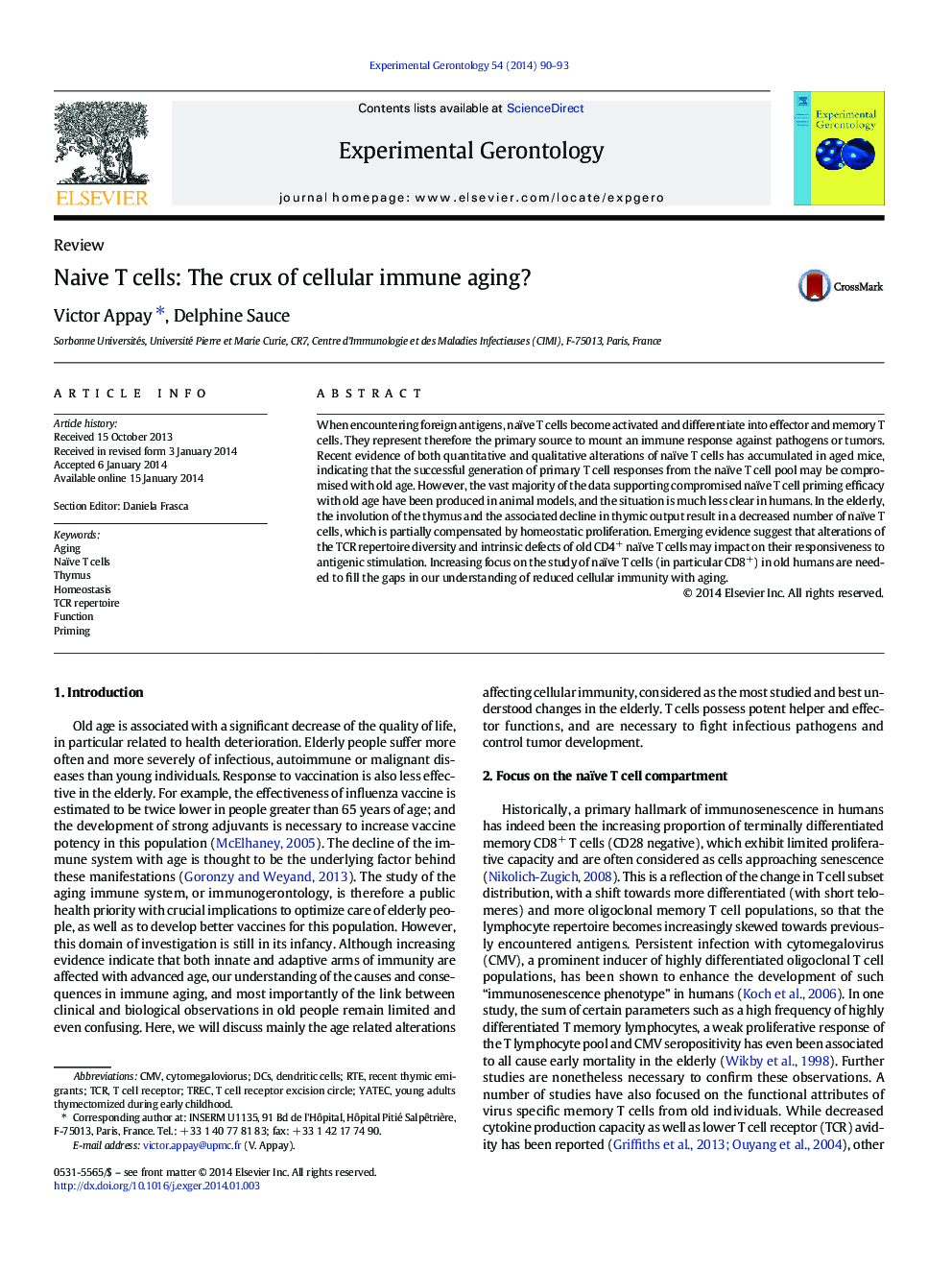| Article ID | Journal | Published Year | Pages | File Type |
|---|---|---|---|---|
| 8264489 | Experimental Gerontology | 2014 | 4 Pages |
Abstract
When encountering foreign antigens, naïve T cells become activated and differentiate into effector and memory T cells. They represent therefore the primary source to mount an immune response against pathogens or tumors. Recent evidence of both quantitative and qualitative alterations of naïve T cells has accumulated in aged mice, indicating that the successful generation of primary T cell responses from the naïve T cell pool may be compromised with old age. However, the vast majority of the data supporting compromised naïve T cell priming efficacy with old age have been produced in animal models, and the situation is much less clear in humans. In the elderly, the involution of the thymus and the associated decline in thymic output result in a decreased number of naïve T cells, which is partially compensated by homeostatic proliferation. Emerging evidence suggest that alterations of the TCR repertoire diversity and intrinsic defects of old CD4+ naïve T cells may impact on their responsiveness to antigenic stimulation. Increasing focus on the study of naïve T cells (in particular CD8+) in old humans are needed to fill the gaps in our understanding of reduced cellular immunity with aging.
Keywords
Related Topics
Life Sciences
Biochemistry, Genetics and Molecular Biology
Ageing
Authors
Victor Appay, Delphine Sauce,
